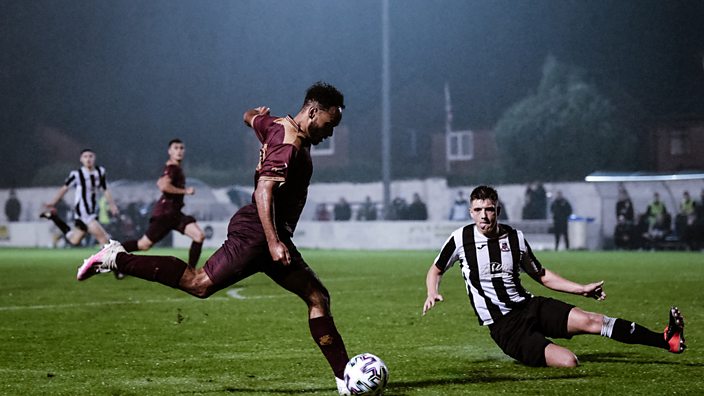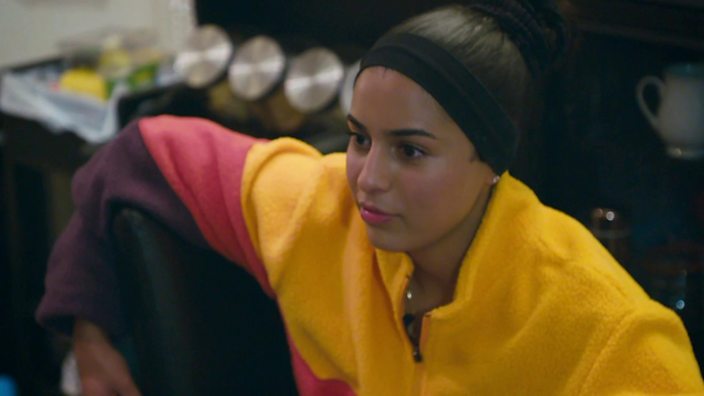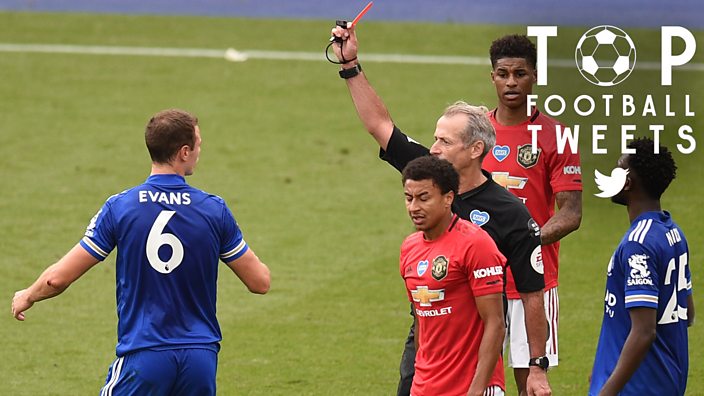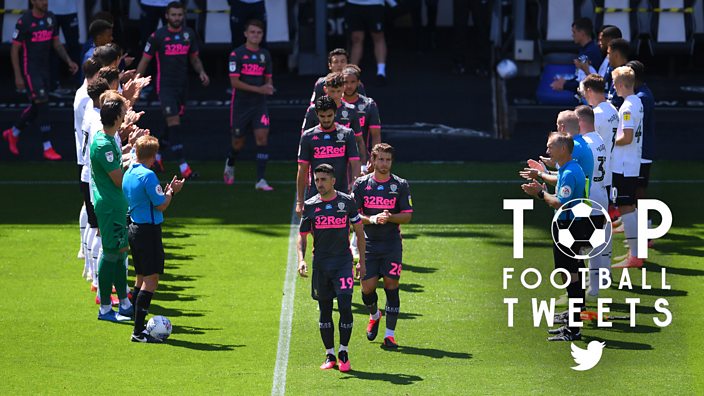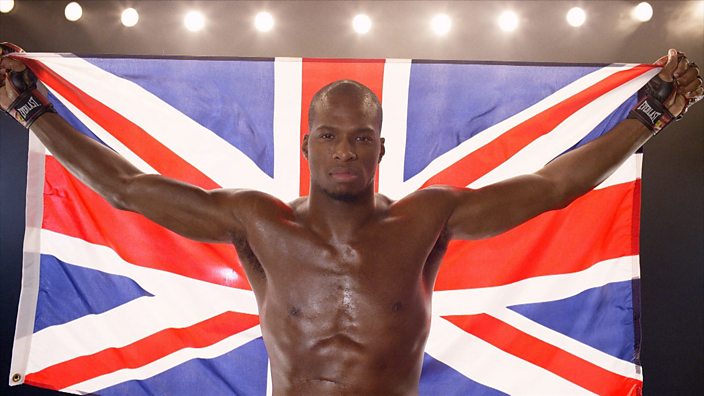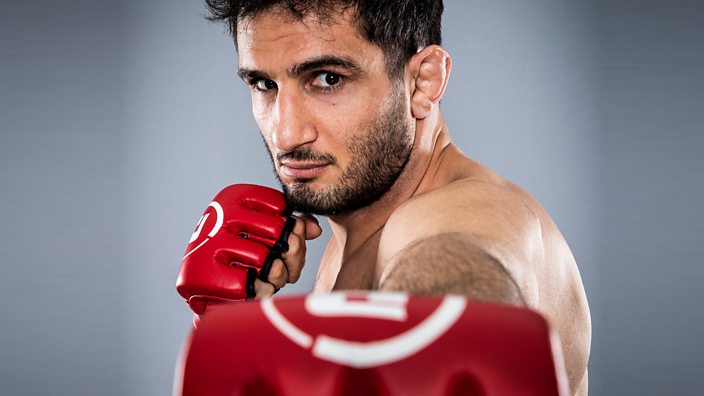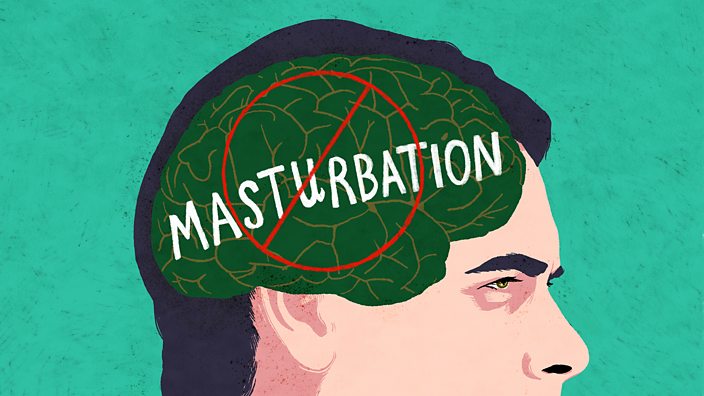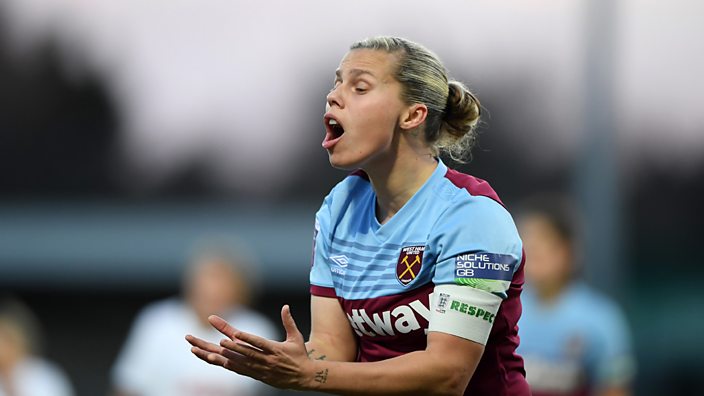 gettyimages
gettyimages'Brutally honest' Squad Goals reveals the harsh reality of women's football
The series gives a real, unfiltered glimpse into life for players and staff at West Ham Women
In a golden age of sports documentaries, where every major club seems to have a documentary franchise (often with an American voice-over for international audiences) Squad Goals is refreshingly gritty and candid.
Speaking at a press event this week, West Ham Women's 20-year-old managing director Jack Sullivan, whose father David Sullivan is joint-chairman of West Ham United, described the series as "brutally honest", something you "don’t quite get in other sporting documentaries".
Filmed during the club's turbulent second season in the Women’s Super League, the series charts some of the highs and plenty of the lows, from frustrating losses on the pitch to struggles with mental health, the harsh financial landscape, managing relationships and dealing with a global pandemic.
Here are just a few takeaways from the series, which you can watch here...
Gilly Flaherty talks about suicide attempt
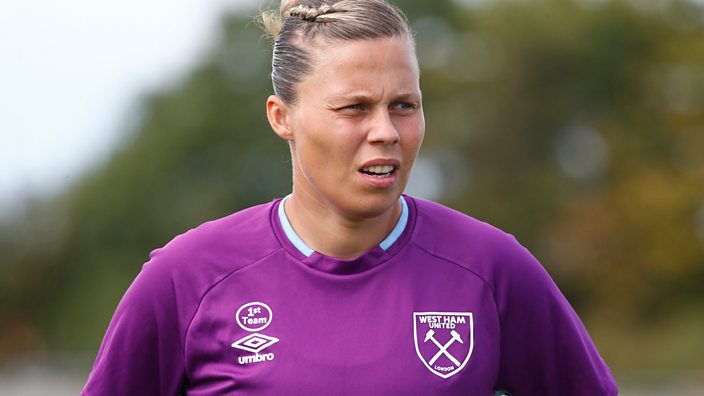 gettyimages
gettyimagesAt 29, captain Gilly Flaherty is a veteran, having come through the Arsenal Ladies’ Academy via Chelsea. She knows the shift that has to be put in, having worked four jobs alongside football when she was semi-pro at Arsenal.
If you were of a sensitive disposition, you might wince at some of her half-time team talks.
“If you think you’re too good for this team then go home,” she tells team-mates at one point.
Given her tough-love approach sometimes, perhaps one of the most surprising and tender scenes is when, in episode five, she opens up in front of the entire squad and staff (not to mention TV crew) about her past struggles with depression, anxiety and suicidal thoughts.
“I remember being 16 and the coach telling me that I was fat. I was living away from home and I was dealing with the fact that I knew deep down that I was gay,” she explains.
“There was a point when I made a decision that I was going to take an overdose, at 17. I couldn’t cope, I just thought I’m just better off not being here.”
Gilly’s story went public earlier this year, in partnership with the Time to Talk and Heads Up campaigns across English football.
Speaking at a press event for the launch of squad Goals this week, she reflected on her decision to share that.
“It speaks credit to the club itself that I never felt comfortable enough to share my story at previous clubs,” she said, adding, “For me to talk about it to thousands of people on Squad Goals - it just felt really fitting.”
New signing Martha Thomas takes counselling
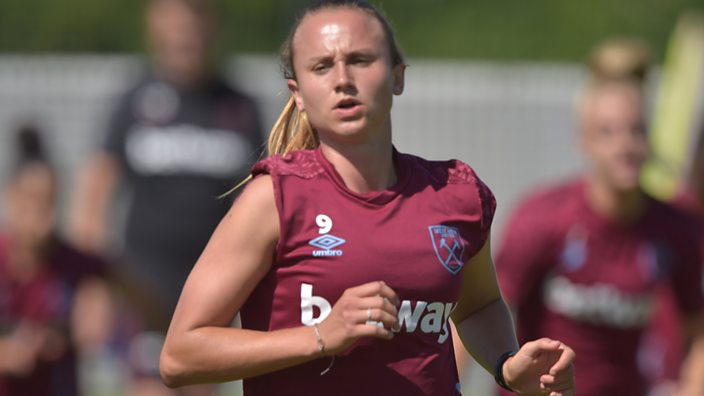 gettyimages
gettyimagesNew striker Martha Thomas arrived last summer with a lot of expectation on her shoulders, being picked to lead the front line in the number nine shirt. When she played in the US, she was the all-time leading scorer for the Charlotte 49ers and helped French team Le Havre to a second-place finish in Feminine Division. Martha made her international debut with Scotland this year and started well for the Hammers by scoring in the opening game of the season against Arsenal.
However, we see in the series how injury and a tough run affect her mental health. At one point she breaks down in front of the squad.
“I am really low on confidence right now, because I actually don’t think people trust me to play me the ball,” she says.
In the final episode, she talks about how she's started talking to a counsellor.
Martha spoke to BBC Three about being involved in the series and about what she’s learned.
“A piece of advice I’ve learned from last season is not to bottle things up,” she said, adding, “Perhaps if I hadn’t done that, I wouldn’t have had that emotional breakdown. There are mental health professionals and sports psychologists who can help.”
Maintaining relationships is tough
Martha is one of the players managing a relationship alongside football. She lives with her girlfriend Ellie, who played with her at Le Havre and now plays for Lewes LFC.
“I don’t think people understand how stressful it can be,” Ellie says in the show. “If one thing isn’t going well in football, it really affects you.”
She talks about how stressed Martha gets when she’s injured.
“I literally wouldn’t even be excited to see her sometimes.”
Martha tells us she’s not sure she could go out with someone who didn’t understand her job.
“We’re not going out every weekend partying. I think it’s good to be on the same page with that.”
That chimes with Gilly, who admits that there are times when she wishes she had a “normal job”.
“Listen, we miss weddings, family parties, we don’t get to go on holiday with the rest of our families because when everyone else gets time off, it tends to be in pre-season. With me and my partner, our life is based solely around my football,” she explains.
Striker Alisha Lehmann is in a relationship with former Chelsea player Ramona Bachmann. When Bachmann signed for Paris Saint-Germain this summer, it meant embarking on a long-distance relationship.
"We’re young, we can do this. Paris is not that far," Alisha says in the final episode.
The living isn't always easy
Many of the players live together. For some, that’s easier than for others.
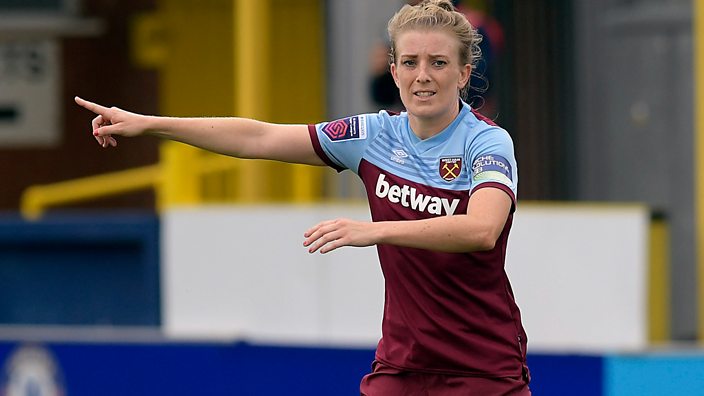 gettyimages
gettyimagesIn the series we see that 31-year-old midfielder Kate Longhurst – a two-time Women's Super League winner - is living in a temporary rented accommodation with some of the team, as she struggles to find a more permanent living situation.
“We don’t earn too much money, so it’s quite hard to find something, especially on your own,” she explains. “You don’t want to be spending money on rent if you can help it, but it’s also quite hard to be approved for a mortgage, because you’re in a job that’s not secure. You can’t go to a mortgage lender and say you’ve got a contract for one year.”
The global pandemic causes disruption
Amongst all the other things that a general manager of a football club has to deal with, an unprecedented global pandemic must be fairly stressful.
While the Premier League resumed this summer, the decision was taken in May to cancel the WSL. Jack explains some of the financial considerations.
"There’s the money in the men’s game where they can test the players, whereas in the women’s game, if we were going to spend that amount of money, it would have a detrimental affect on next season,” he says in the series.
Matt Beard says that the hit to the club's finances also means they will be operating with a smaller squad next season.
Women’s football has had a meteoric rise in profile over the past couple of years, catapulted, in particular, by the popularity of the Women’s World Cup last year, which saw record viewing figures of 21.8 million on the BBC.
The WSL can now legitimately be argued to be the best women's league in the world too, with lots of big name overseas players being signed to the league this summer.
Squad Goals features West Ham and Tottenham Hotspur women attracting over 24,000 spectators to the Stadium of London. Nevertheless, what the series shows is that, for a lot of these players, there's still a lot of work that goes into promoting the women's game and plenty of personal sacrifices that have to be made.
As Captain Gilly Flaherty tells the team in one of her half-time addresses - "No one in here’s a princess, no one here’s a prima donna. You work, you graft, you fight for the badge on the chest, because that’s bigger than the name on the back, regardless of what you’ve won!"
Watch Squad Goals now on BBC iPlayer.
If you, or someone you know, have been affected by mental health issues, these organisations may be able to help.

